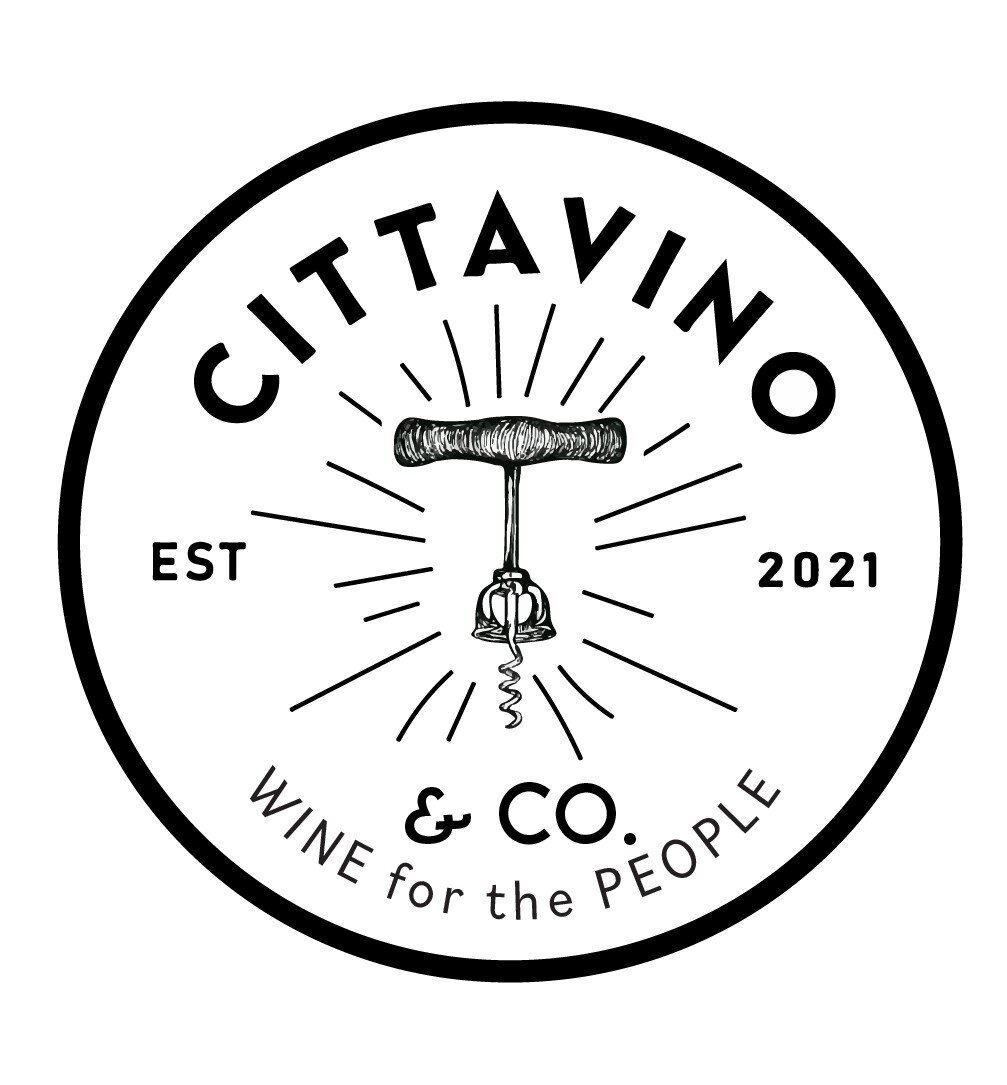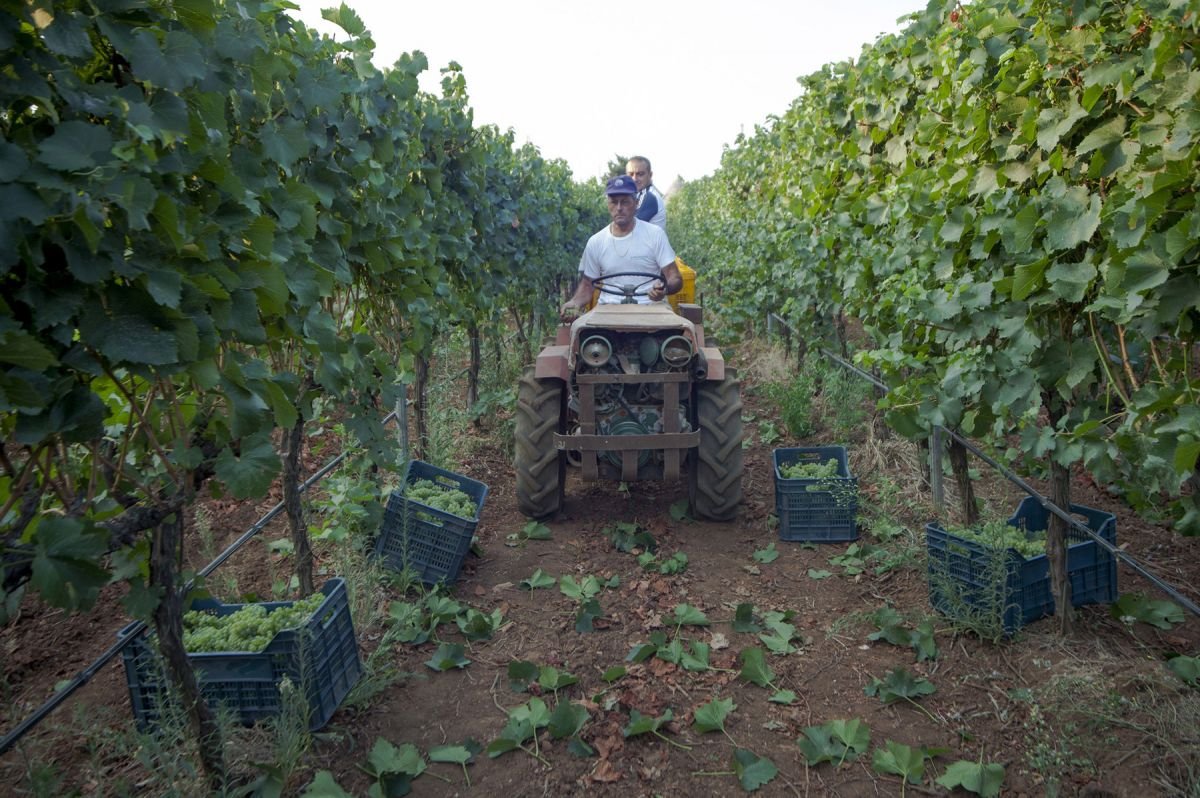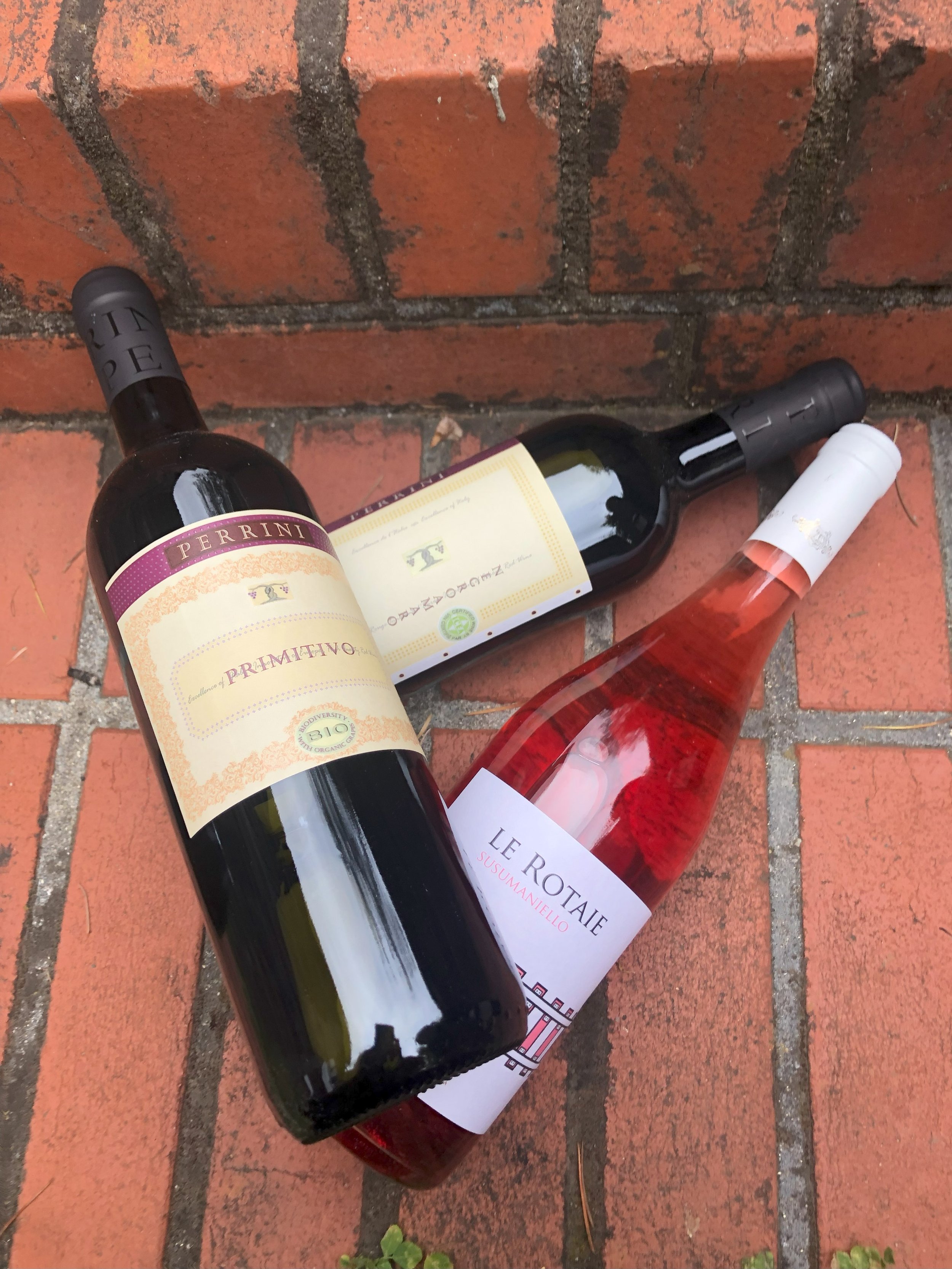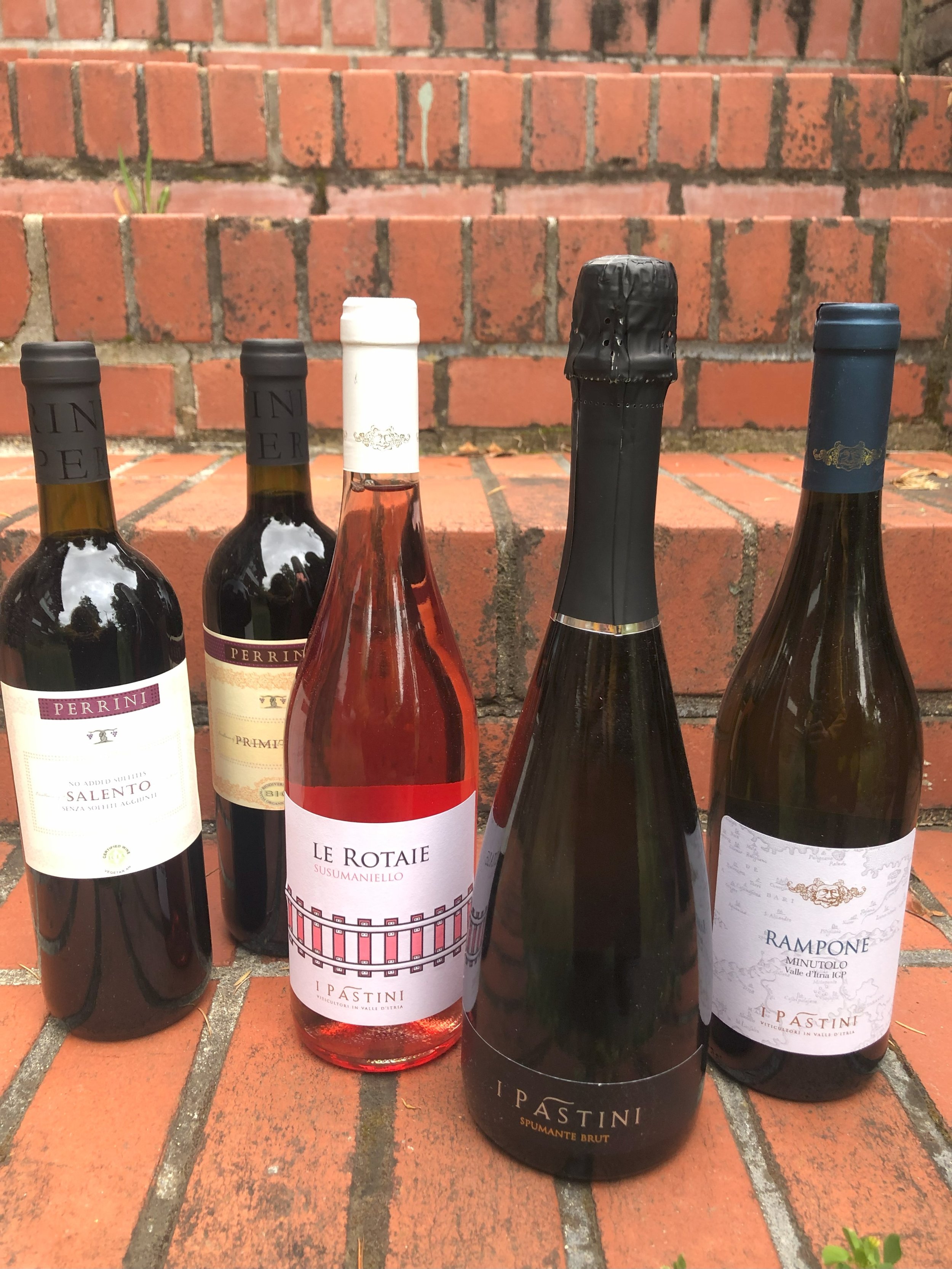MAY is for PUGLIA
I Pastini
The I Pastini estate is located in the Valle d’Itria between Locorotondo and Martina Franca. This part of Puglia is hilly, more continental (weather extremes and cool night time temperatures), and known for the rocky karst landscape.. Karst is a mix of sandstone and limestone that erodes over time, leaving caves and sink holes (in fact, the famous town of Materia is made from karst, hence all the cave dwellings).
The I Pastini Susumaniello has a darker pink hue, but don’t be fooled by its color- it’s as vibrant as ever! Susumaniello is the name of the grape variety, and while its origins are unknown, it is typically grown in the southern portion of the region. The grape takes on a new life in these limestone soils.
Puglia’s answer to prosecco. Try this easy, floral, green pear sipper made from the Verdeca grape with seafood crudo, fava bean crostini, green olives and vegetable farro salads.
Minutolo is an aromatic grape variety indigenous to the Valle d’Itria. There are only a handful of producers that work with it but I Pastini’s is by far the best. The aromatics are upfront, but not cloying, and are offset with a fresh acidity.
I Perrini are located in the province of Taranto, on the western coast of Puglia. Their wines are a revelation, especially if you’re already familiar with the native Pugliese grapes of Negroamaro and Primitivo- they set a new benchmark.
Inky dark, but I Perrini does not try to smooth out its tannins, or turn it into something it’s not. It’s true to its rustic, brambly nature and I love it! It’s the perfect accompaniment to BBQ and Pizza night.
Primitivo is fruity, there’s no denying. But the I Perrini is lighter on its feet than your typical, sappy slightly sweet zinfandel look alike. Try with BBQ, and hard cheese at the end of a meal.
The best of both worlds- the Salento rosso is a blend of Negroamaro and Primitivo. Amazingly, this wine has no added sulphites! you would never know it, natural wine making at its best.



